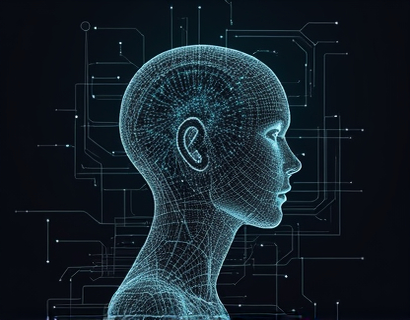AI-Driven Podcasting: Transforming Audio Content with Intelligent Generation
The landscape of audio content is undergoing a significant transformation with the advent of AI-driven podcasting. This innovative approach leverages intelligent algorithms to create immersive and engaging content, redefining how we discover and enjoy insightful discussions on any topic. As technology advances, the integration of artificial intelligence in podcast production is not just a trend but a revolution that promises to enhance the listening experience like never before.
Understanding AI in Podcasting
AI-driven podcasting involves the use of machine learning and natural language processing to generate, edit, and curate audio content. These intelligent systems can analyze vast amounts of data to understand listener preferences, generate compelling narratives, and even create realistic voice simulations. The core idea is to automate and optimize various stages of podcast production, from scriptwriting to post-production, ensuring a seamless and high-quality listening experience.
Benefits of AI-Driven Podcasting
One of the most significant advantages of AI in podcasting is the ability to produce content at scale. Traditional podcast production is time-consuming and resource-intensive, often limiting the frequency and variety of episodes. AI can significantly reduce production time by automating tasks such as research, scriptwriting, and editing. This efficiency allows creators to release new episodes more regularly, keeping their audience engaged and coming back for more.
Another benefit is the personalization of content. AI algorithms can analyze listener data to tailor episodes to individual preferences, enhancing the overall listening experience. For example, an AI system might adjust the pace, tone, or even the topics discussed based on a user's listening history and feedback. This level of customization not only increases listener satisfaction but also fosters a deeper connection between the content and its audience.
Content Generation and Creativity
Contrary to the common perception that AI lacks creativity, modern AI systems are capable of generating highly original and engaging content. By learning from vast datasets, these algorithms can identify patterns, trends, and storytelling techniques that resonate with audiences. For instance, AI can craft compelling opening hooks, develop intricate plotlines, and even create realistic character dialogues. This capability opens up new possibilities for podcast formats, allowing for more experimental and innovative content.
Moreover, AI can assist human creators in brainstorming and ideation. By suggesting topics, themes, and even potential guests, AI tools can help podcasters overcome creative blocks and discover new angles for their shows. This collaboration between human creativity and AI intelligence results in content that is both unique and relevant, appealing to a broader audience.
Enhancing Audio Quality and Production
AI-driven podcasting also revolutionizes the technical aspects of audio production. Advanced algorithms can perform tasks such as noise reduction, echo cancellation, and voice separation with high precision. These capabilities ensure that the final audio product is crisp, clear, and professional, even when recorded in less-than-ideal conditions. For independent podcasters or those with limited budgets, this technology democratizes access to high-quality production standards.
Additionally, AI can optimize the mixing and mastering processes, adjusting levels, equalization, and compression to achieve a balanced and polished sound. This automation not only saves time but also ensures consistency across episodes, enhancing the overall listening experience.
Listener Engagement and Interaction
One of the most exciting aspects of AI-driven podcasting is the enhanced listener engagement. AI systems can analyze listener interactions in real-time, providing insights into what content is resonating and what isn't. This data can be used to make on-the-fly adjustments, such as changing the direction of a discussion or introducing new elements to keep the audience hooked. Such dynamic interactions make each episode feel more personalized and engaging.
Furthermore, AI can facilitate deeper listener interaction through chatbots and virtual assistants integrated into podcast platforms. These tools can answer questions, provide additional context, and even encourage listener participation through polls and Q&A sessions. This two-way communication not only enriches the listening experience but also builds a more loyal and active community around the podcast.
Challenges and Considerations
While the potential of AI-driven podcasting is vast, there are several challenges and considerations to keep in mind. One of the primary concerns is the ethical use of AI. Ensuring that AI-generated content respects copyright laws, avoids bias, and maintains ethical standards is crucial. Creators must be vigilant in monitoring AI outputs and implementing safeguards to prevent misuse or unintended consequences.
Another challenge is the balance between automation and human touch. While AI can handle many aspects of podcast production, the unique qualities that make a podcast truly special often come from the human element—emotion, spontaneity, and authenticity. Creators should strive to integrate AI tools in a way that complements and enhances their own creativity, rather than replacing it entirely.
The Future of Audio Entertainment
The integration of AI in podcasting is just the beginning of a new era in audio entertainment. As technology continues to evolve, we can expect even more sophisticated and intuitive AI tools that further enhance the podcasting experience. For instance, AI could enable real-time translation and transcription, making podcasts accessible to a global audience. It could also facilitate the creation of immersive audio experiences, such as 3D soundscapes, bringing listeners closer to the content than ever before.
The potential for AI-driven podcasting extends beyond entertainment into education, news, and personal development. Imagine educational podcasts that adapt to a learner's pace and style, news updates that summarize complex stories in a concise and engaging manner, or personal development podcasts that offer tailored advice based on individual goals and progress. The possibilities are endless, and the future looks bright for those who embrace this transformative technology.
Conclusion
AI-driven podcasting represents a significant leap forward in the way we create and consume audio content. By leveraging intelligent algorithms, creators can produce high-quality, engaging, and personalized episodes more efficiently than ever before. As the technology matures, we can expect to see a proliferation of innovative podcast formats and a deeper connection between content and listeners. Embracing AI in podcasting is not just about staying current; it's about unlocking new frontiers in audio entertainment and education.










































